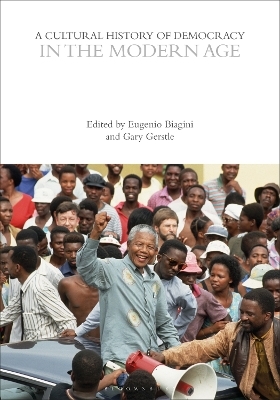
A Cultural History of Democracy in the Modern Age
Bloomsbury Academic (Verlag)
978-1-350-44016-6 (ISBN)
From 1920 democracy became the hegemonic discourse in political cultures, to the extent that even its enemies claimed its legacy. The end of empires ushered in an unprecedented globalization of democratic aspirations. Barriers of gender and race were gradually removed, and greater equality gave new meaning to citizenship. Yet, already in 1922 democracy was on its back foot with the rise of fascism. Even after the latter’s defeat in 1945, liberal democracy died wherever communist democracy triumphed. The situation changed again from 1989, but democratic hubris was then checked by the rise of a new enemy—populism. The paradox is that the century of democracy’s triumph was also that of its near final defeat, while the peace and stability that everybody desired and many expected as the outcome of the extension of democracy were, at best, intermittent and geographically limited.
Each chapter takes a different theme as its focus: sovereignty; liberty and the rule of law; the “common good”; economic and social democracy; religion and the principles of political obligation; citizenship and gender; ethnicity, race, and nationalism; democratic crises, revolutions, and civil resistance; international relations; and democratic politics beyond the polis. These ten different approaches to democracy since 1920 offer a global, synoptic, and probing exploration of the subject.
Eugenio Biagini is Professor of Modern and Contemporary History and Fellow of Sidney Sussex College, University of Cambridge, UK. Gary Gerstle is Paul Mellon Professor of American History and Fellow of Sidney Sussex College, University of Cambridge, UK.
List of Illustrations
General Editor's Preface
Acknowledgments
Introduction
Eugenio F. Biagini and Gary Gerstle (University of Cambridge, UK)
1. Sovereignty
Emma Hunter (University of Edinburgh, UK) and Joel Isaac (University of Chicago, USA)
2. Liberty and the Rule of Law
H. Kumarsasingham (University of Edinburgh, UK) and Marius Strubenhoff (University of Sheffield, UK)
3. The Common Good
Eugenio Biagini (University of Cambridge, UK) and Ornit Shani (University of Haifa, Israel)
4. Social and Economic Democracy
James T. Kloppenberg and John Gee (Harvard University, USA)
5. Religion and the Principles of Political Obligation
Eugenio Biagini (University of Cambridge, UK) and Todd M. Thompson (Biola University, USA)
6. Citizenship and Gender
Ragnheiður Kristjánsdóttir (University of Iceland, Iceland) and Anupama Roy (Jawaharlal Nehru University, India)
7. Race, Ethnicity, and Nationalism
Saul Dubow (University of Cambridge, UK) and Gary Gerstle (University of Cambridge, UK)
8. Democratic Crises, Revolutions and Civil Resistance
Franco Andreucci (University of Pisa, Italy)
9. International Relations
Elizabeth Bogwardt (Washington University, USA) and Eugenio Biagini (University of Cambridge, UK)
10. Beyond the Polis
Nadia Urbinati (Columbia University, USA) and Vikram Visana (University of Huddersfield, UK)
Notes
References
Notes on Contributors
Index
| Erscheinungsdatum | 27.01.2024 |
|---|---|
| Reihe/Serie | The Cultural Histories Series |
| Mitarbeit |
Herausgeber (Serie): Eugenio Biagini |
| Zusatzinfo | 50 bw illus |
| Verlagsort | London |
| Sprache | englisch |
| Maße | 169 x 244 mm |
| Themenwelt | Geschichte ► Allgemeine Geschichte ► Neuzeit (bis 1918) |
| Geschichte ► Teilgebiete der Geschichte ► Kulturgeschichte | |
| Sozialwissenschaften ► Politik / Verwaltung ► Politische Systeme | |
| ISBN-10 | 1-350-44016-7 / 1350440167 |
| ISBN-13 | 978-1-350-44016-6 / 9781350440166 |
| Zustand | Neuware |
| Haben Sie eine Frage zum Produkt? |
aus dem Bereich


